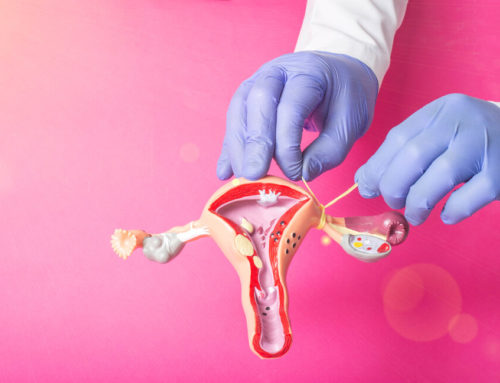An anterior placenta is a type of placenta placement that occurs in some pregnancies. It refers to a placenta in front of the uterus instead of being positioned toward the back (posterior placenta). Anterior placenta placement can impact a woman’s entire pregnancy experience, including potential difficulties in feeling fetal movements and discomfort during prenatal check-ups. However, an anterior placenta in pregnancy is generally considered a common and harmless condition. It affects approximately 25-30% of pregnancies.
In this article, we will explore what the anterior placenta means, its effects on pregnancy, and whether you should be concerned about it. Don’t hesitate to contact Advanced Obgyn Institute with questions or concerns. We provide high-quality care in a welcoming, friendly, and comfortable setting, with special attention paid to the needs of women.
Different Locations of the Placenta
The placenta is an essential organ in pregnancy, serving as a link between the mother and the fetus. It provides oxygen, nutrients, and waste removal for the growing fetus. The location of the placenta in the uterus can vary from pregnancy to pregnancy and can have an impact on the individual’s pregnancy experience.
There are four typical locations for the placenta: anterior, posterior, fundal, and lateral. An anterior placenta is positioned at the front of the uterus and can make it harder for the mother to feel her baby move. A posterior placenta is located at the back of the uterus and may cause discomfort during prenatal check-ups due to pressure on the bladder. A fundal placenta is situated at the top of the uterus, while a lateral placenta is positioned on the side.
In most cases, the location of the placenta does not cause any significant problems for the mother or the fetus. However, in rare cases, a placenta positioned too low in the uterus, called placenta previa, can cause complications. If the placenta covers the cervix, it can prevent a vaginal birth and may require a cesarean delivery.
Overall, the location of the placenta is something that should be monitored throughout pregnancy. Your doctor will perform ultrasound scans to check the location of the placenta and ensure it is not causing any issues. If there are any concerns, your doctor will help you manage the situation accordingly. In most cases, the location of the placenta is not something to worry about, and you can focus on enjoying your pregnancy and preparing for your baby’s arrival.
Why Does Someone Have Anterior Placenta in Pregnancy?

The exact reason why some people have an anterior placenta is not known, but there are a few factors that may contribute to its development.
One factor is genetics. Research has shown that there may be a genetic predisposition to the formation of an anterior placenta in pregnancy. Women who have a family history of the anterior placenta are more likely to have one themselves.
Another factor is the size and shape of the uterus. The uterus is not a uniform shape and size, and this may influence the position of the placenta. A woman with a larger or differently shaped uterus may be more likely to have a placenta in front of it.
Finally, previous uterine surgery or anomalies may also increase the likelihood of having an anterior placenta. Scarring or changes to the structure of the uterus as a result of surgery or other factors may influence the placement of the placenta in front of the uterus.
The Symptoms of an Anterior Placenta
As mentioned, one of the most noticeable symptoms of an anterior placenta is difficulty feeling fetal movements. The placenta acts as a barrier between the fetus and the mother, making it harder for the mother to feel the baby. This can cause some worry and anxiety, but it is essential to remember that it is normal and that the placenta will eventually move to a more favorable position as the uterus expands.
Another symptom of an anterior placenta is that it may cause some discomfort during prenatal check-ups, as the pressure on the bladder can be more noticeable. Women with an anterior placenta may also experience pain or discomfort in the abdominal area as the uterus expands and puts pressure on the abdominal muscles.
In most cases, these symptoms are temporary and will resolve as the pregnancy progresses. However, speak with your doctor if you are experiencing severe or persistent symptoms. They will be able to guide and advise you on how to manage the situation and ensure that your pregnancy is progressing as it should.
What to Expect From an Anterior Placenta Delivery?
Women with an anterior placenta may have a slightly different delivery experience compared to those with a posterior placenta. During delivery, the anterior placenta can serve as a barrier between the baby and the mother, making it harder for the baby to descend into the birth canal. This can lead to longer labor or the need for assisted delivery, such as vacuum extraction or forceps.
It’s important to remember that every pregnancy is unique, and having an anterior placenta does not necessarily mean that you will have a complicated delivery. In most cases, women have a safe and successful anterior placenta delivery with the support of their doctor and healthcare team.
Is There a Reason to Worry About Anterior Placenta?

While having an anterior placenta can impact a woman’s pregnancy to a certain degree, it is essential to remember that these symptoms are temporary and will resolve in time.
In terms of anterior placenta delivery, affected women may have a slightly different experience, but it does not necessarily mean that the delivery will be complicated.
Remember that every pregnancy is unique and that the impact of an anterior placenta will vary from woman to woman. If you are concerned about your pregnancy, it is always best to discuss it with your doctor, who will be able to provide guidance and support. For the best obstetrics services in Weston, FL, you can always count on Advanced Obgyn Institute.
Take Good Care of Yourself
Throughout your pregnancy, your doctor will keep tabs on both the position of your baby and the position of your placenta. A healthy pregnancy and delivery are the result of proper prenatal care and the treatment of any complications that may emerge.
Talk to your doctor about your concerns regarding your anterior placenta; they will be able to give you specific information based on your health history. However, in the vast majority of cases, an anterior placenta is nothing to worry about.
We at Advanced Obgyn Institute promise the highest standard of care and will keep a close eye on you throughout your pregnancy. You may rest assured that you will be surrounded by the most qualified obstetricians in the area throughout your entire pregnancy, labor, and delivery.






